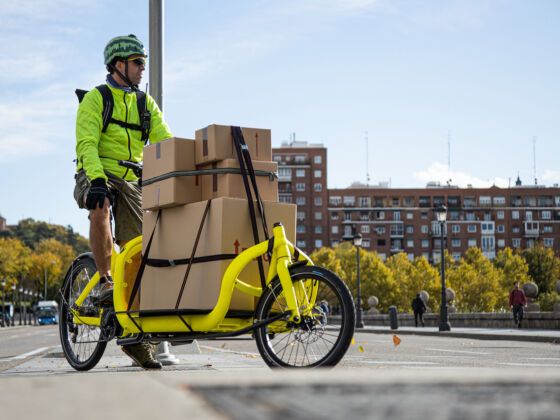This is the Climate Win, the most positive sustainability news around the world every week.
This week’s Climate Win is all about e-bikes. Not just any e-bikes, however, as we aren’t here to repeat ourselves. Today we’re celebrating a very specific type of electric bicycle: the e-cargo bike, which you may be seeing more of on the streets of your city in the near future. That’s because a new report from Promise, a UK-based non-profit working towards environmental solutions, just released a detailed report on how cargo bikes are on the rise in London and elsewhere as an efficient, eco-friendly means of moving goods about an urban area.
